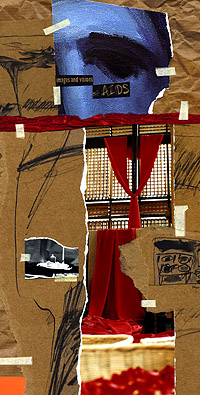Being
An ecumenical consultative group, made up of specialists in a number of disciplines, was appointed by the Central Committee in 1994. It was asked to study three separate facets of the churches' response to HIV/AIDS: theology and ethics, justice and human rights, and pastoral care.
Its report described AIDS as "a spotlight, exposing and revealing many iniquitous conditions in our personal and community lives which we have not been willing to confront".
Approaching AIDS as a matter of pastoral care builds on a long ecumenical tradition of helping the churches to take seriously their role as healing communities.
At one time the link between the churches and healing was perhaps most clearly evident in medical mission. Today, there is a growing recognition that healing and wholeness involve more than medical concerns.
The churches' difficulties in responding to the HIV/AIDS pandemic have demonstrated the inseparable links between healing and being healed. As the message of the world conference on Faith and Order in Santiago de Compostela in 1993 said:
healed,
proclaiming
healing
AIDS has also had a profound effect on the life and ministry of Christian churches; and it soon became a key concern of the World Council of Churches. One response by the Council was to create and distribute basic educational materials about AIDS for community health workers in the South, where few such resources were available.
The church is called to be a sign and instrument of the all-encompassing will of God, the summing up of all things in Christ. Only a church itself being healed can convincingly proclaim healing to the world.

The images are "Images and Visions of AIDS", by Janis Pozzi-Johnson (USA) & Sergio Centeno (Puerto Rico); Center image of AIDS ribbon: Geneva, Switzerland, 1996: WCC Central Committee meeting (Peter Williams/WCC).